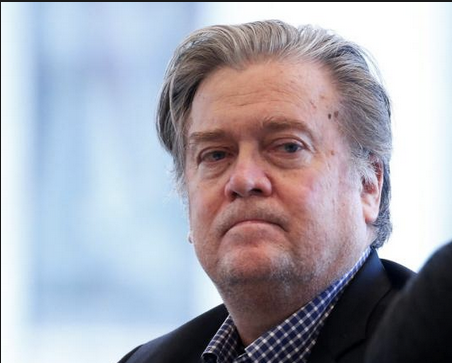Stephen K. Bannon, the executive chairman of Breitbart News and the former White House chief strategist, spoke with Jeremy W. Peters, a reporter for The New York Times, in a wide-ranging interview on Wednesday.
The following are highlights from the transcript of that interview, with analysis from Mr. Peters.
Defining the current era
BANNON: This will be looked at as a revolt of working-class people of both parties. O.K. At a time that really rejected the permanent political class that is inextricably linked, both Republican and Democrat in Washington, D.C., and try to take back — try to take back their government and — and had it — have it more responsive to themselves. Is that a couple — is that a couple sentences?
PETERS: I think it’s more than a couple, but it’ll do. So taking it back to the permanent political class, I think the chief offender in your mind is Mitch McConnell. So tell us what you have against Mitch McConnell.
BANNON: I think — I don’t know if he’s the chief offender, but he’s — he’s the — he. It’s both individuals and institutions. Washington’s an institutional city. Remember, we’ve had quite a — a — quite a run. This — this — this movement not only stopped the Dreamers bill in the summer of 2013, a year later, for the first time in the history of the Republic, we removed in a primary the majority leader in — in Cantor. Right? And then later the following year, Donald Trump came down the escalator riding the same — the same — he was No. 7 at the top of the escalator. He’s No. 7. By the — when he came down the escalator after the speech, I think that evening or the next morning — he was No. 1 in the polls. O.K.?
Mr. Bannon is often characterized as far-right. But he has always seen himself as a player in a broader political movement that, at its core, is neither right nor left, but populist.
In his ideal world, he would stitch together a coalition that draws in disaffected working-class voters from both parties who share a belief that they are powerless in the current economic and political system and disrespected by its leaders. Accomplishing this with a leader as polarizing as President Trump, of course, is more theoretical at this point than realistic.




